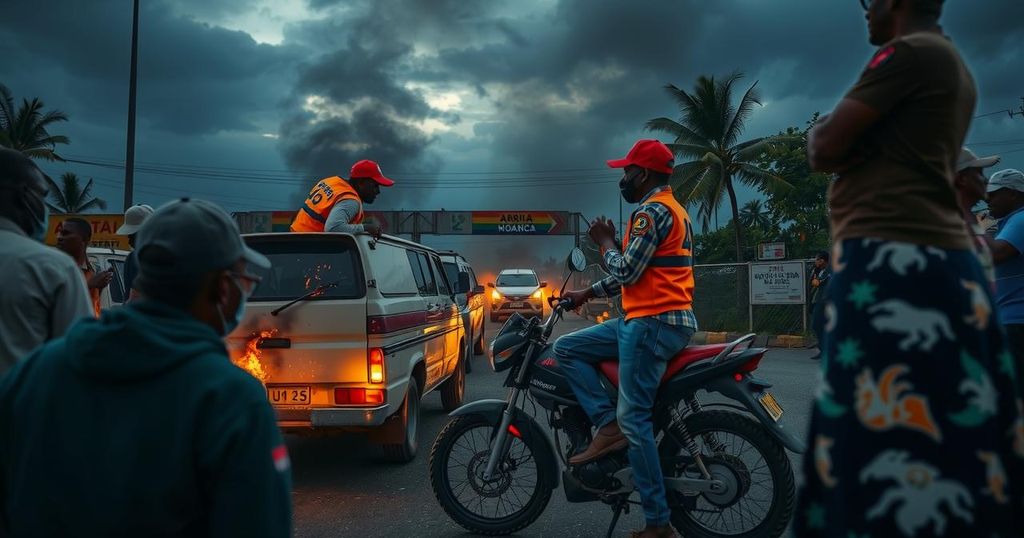Mozambican Protests Escalate Amid Claims of Electoral Fraud and Violence

Protests in Mozambique continue following the October 9 elections, with opposition leader Venancio Mondlane mobilizing citizens against FRELIMO’s alleged electoral fraud. Violent clashes with security forces have resulted in numerous casualties. Internet interruptions have done little to suppress the unrest, characterized by unique forms of public protest. The protests have triggered the closure of the South African border, leading to humanitarian concerns.
The ongoing protests in Mozambique, sparked by the elections held on October 9, have created a significant political upheaval in the country. Opposition leader Venancio Mondlane of the PODEMOS party has proactively encouraged citizens to demonstrate against the ruling FRELIMO party, which has been in power since 1975. Allegations of electoral fraud have exacerbated the tensions, culminating in deadly confrontations between demonstrators and police. Reports indicate dozens of fatalities and injuries as governmental forces respond with violence, including the use of tear gas and live ammunition. Amidst these protests, the South African border crossing at Lebombo has been halted due to vandalism incidents involving South African trucks, stranding numerous drivers who are now relying on humanitarian aid. With governmental measures such as sporadic internet blackouts unable to deter public dissent, citizens are employing creative forms of protest, such as banging pots to express their discontent. The situation remains dire, as various professional organizations express concerns of escalating violence if the October election results remain unchallenged.
This situation in Mozambique is critically linked to the political landscape following the recent elections, where the ruling party, FRELIMO, is accused of electoral malpractice. These accusations have led to a revolutionary sentiment among the populace, urging a collective movement against long-standing governance that many citizens no longer view as legitimate. The internet disruptions reflect the state’s attempt to quell dissent, although such measures have provoked even greater frustration among the citizens.
In conclusion, the protests in Mozambique signify a turning point in the nation’s political trajectory, fueled by claims of electoral fraud and systemic grievances against the ruling party. The escalation of violence, accompanied by the closure of borders and the imaginative protests by the citizens, suggests that without effective dialogue and resolution strategies, the potential for further upheaval remains alarmingly high. A critical examination of the political framework is necessary to avoid a possible descent into chaos.
Original Source: www.fides.org







